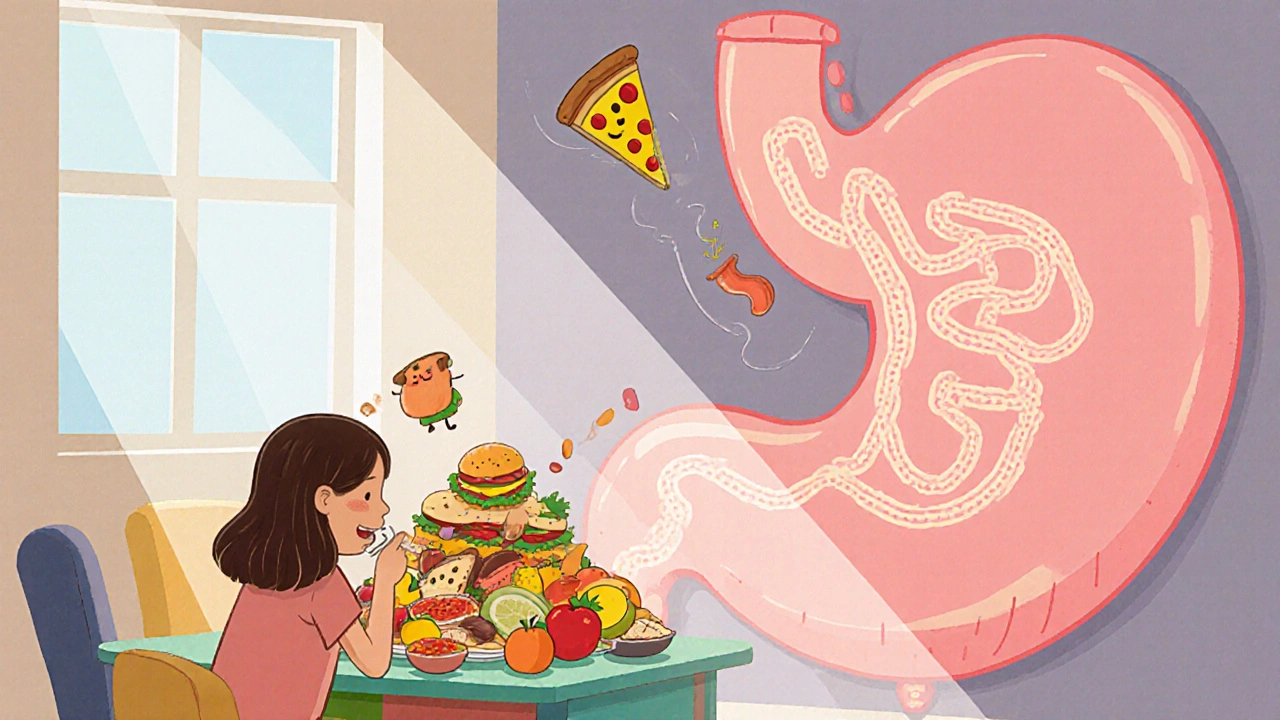Eating Disorders: Types, Causes, and How to Get Help
When talking about eating disorders, a group of mental health conditions marked by unhealthy thoughts and behaviors around food, weight, and shape. Also known as disordered eating, they affect millions worldwide and show up in many forms. One common form is Anorexia Nervosa, characterized by extreme restriction of food intake and a relentless fear of gaining weight. Another prevalent condition is Bulimia Nervosa, involving cycles of binge eating followed by compensatory actions like vomiting or excessive exercise. A third major type is Binge‑Eating Disorder, marked by frequent episodes of eating large amounts of food without subsequent purging. Understanding these sub‑conditions is the first step toward proper care, because eating disorders encompass a wide range of symptoms and health risks.
What Triggers an Eating Disorder?
Research shows that body image plays a huge role: the way a person sees their own shape can push them toward restrictive or binge behaviors. Genetics also matter; relatives of someone with an eating disorder often share a higher risk. Trauma, stress, and cultural pressure add layers, making each case unique. The link between body image and eating disorders is clear: a distorted self‑view fuels unhealthy eating patterns. At the same time, nutritional deficiencies and hormonal imbalances can worsen the condition, creating a feedback loop that’s hard to break without professional help. Knowing that managing eating disorders requires both mental health support and nutritional therapy helps set realistic expectations for recovery.
Treatment options vary by type but share core components. Cognitive‑behavioral therapy (CBT) addresses the thought patterns that drive disordered eating, while family‑based therapy can be crucial for younger patients. Medication, such as certain antidepressants, may aid binge‑eating disorder by reducing urges. Nutritional counseling restores balance and teaches healthier eating habits. In many cases, a multidisciplinary team—psychologists, dietitians, and physicians—works together to tackle the physical and emotional sides of the disorder. By recognizing that psychological counseling helps treat bulimia nervosa and that medication can support binge‑eating disorder, readers can see how each piece fits into the larger puzzle. Below, you’ll find a curated list of articles that dive deeper into specific drugs, therapies, and practical tips related to eating disorders and their wider health impacts.
Bulimia Nervosa’s Long‑Term Impact on Gastrointestinal Health
Explore how binge‑eating and purging damage the esophagus, stomach, and intestines over time, and learn practical steps to monitor and protect your gut health.
View more
